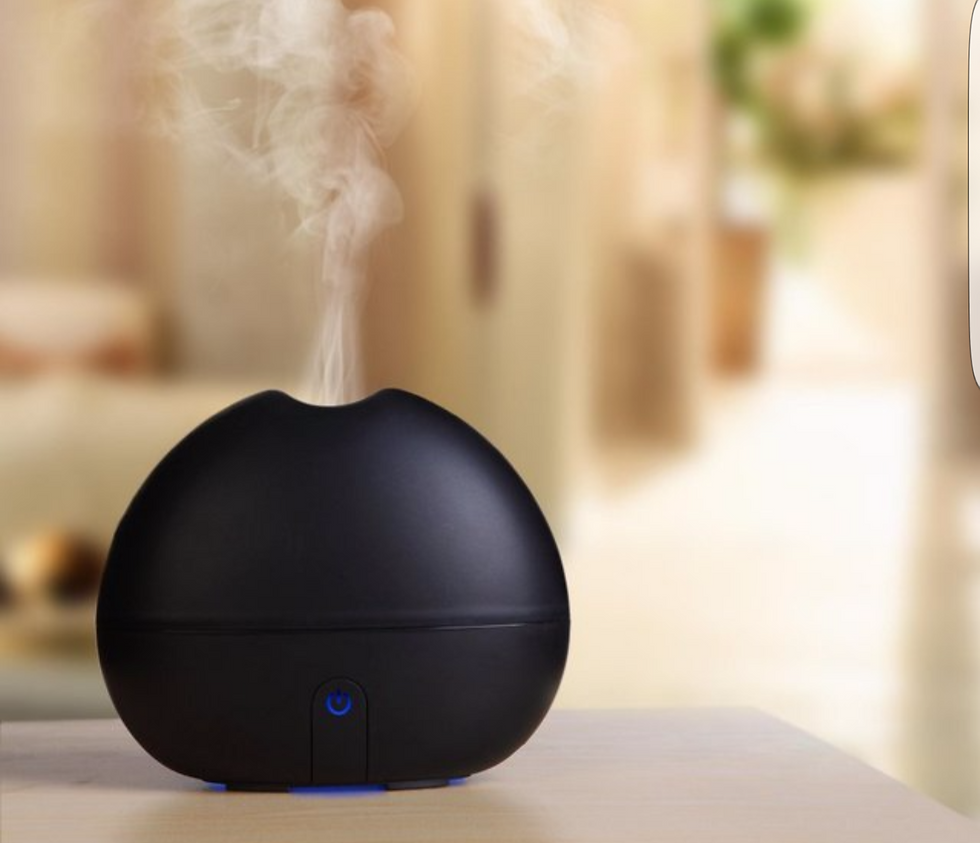Whatcha puttin up your nose?
- Trina Roberts, CHC, MH

- Dec 4, 2017
- 3 min read

What is that smell?
And why do I feel "this" way?
Have you ever "inhaled" something and noticed an immediate effect? Was it a happy feeling, clarity of thought, a headache? Here's why.
The inhaled aroma is widely believed to stimulate brain function. So what you smell can have a positive effect or a negative consequence. When we inhale through the nose, airborne molecules interact with the olfactory organs and, almost immediately, the brain. Molecules inhaled through the nose or mouth are also carried to the lungs and interact with the respiratory system. Thus, inhaled essential oils can affect the body through several systems and pathways.
During inhalation, odor molecules travel through the nose and affect the brain through a variety of receptor sites, one of which is the limbic system, which is commonly referred to as the "emotional brain." The limbic system is directly connected to those parts of the brain that control heart rate, blood pressure, breathing, memory, stress levels, and hormone balance (Higley & Higley, 1998). This relationship helps explain why smells often trigger emotions. Knowing this, we can understand how inhalation of essential oils can have some very profound effects on the mind and body.
Diffusers disperse essential oils as a fine vapor throughout the air so they can be absorbed gently into the body through the respiratory system. The aroma can prompt the nervous system to transmit signals to the limbic system in the brain – the same part of the brain that houses emotion and memory. The brain may respond by initiating various functions, such as a release of hormones, relief from pain, or a positive boost in mood.
So what are some ways to receive "therapy" from these aromas?
Glad you asked!
Clean the air
Diffusing essential oils can raise the levels of oxygen in the air, destroy mold germs, raise the levels of ozone and negative ions, destroy chemicals and make your house smell nice as well.
Reinforce your immune system
Diffusing eucalyptus and cinnamon essential oils will strengthen your immune system and help the body fight various infections. One French study put the oils against 210 colonized microbes, and in just over an hour, only 4 remained active. All you need to do is add 5-10 drops of cinnamon or eucalyptus oil in a diffuser with water and turn it on.
Reduce stress and help you relax
The essential oil molecules can pass your cell membranes and the blood-brain barrier, reaching the center of this vital organ in just a short time. Once they get to the hypothalamus, they can reduce stress and improve your mood and energy levels, effectively helping you relax. To create an extra powerful anti-stress blend, mix 5 drops of lavender essential oil, 3 drops of ylang-ylang and a 3 drops of bergamot oil.
Improve your sleep
There are several studies that show a combination of lavender and other essential oils can reduce your blood pressure and stimulate production of stress hormones, effectively helping you fall asleep easier and get some much-needed rest overnight.
Reduce chest congestion
Experts recommend clearing mucous blockages or bronchial inflammation by diffusing a mixture of eucalyptus, lemon, rosemary and peppermint essential oils. The same oils work great against asthma and other respiratory problems as well. For children under 10 yrs old, studies now say eucalyptus should be avoided.
Now, before you go and start inhaling essential oils, make sure they are pure. All of the benefits above means absolutely nothing if they have been altered with artifical crap.



Comments